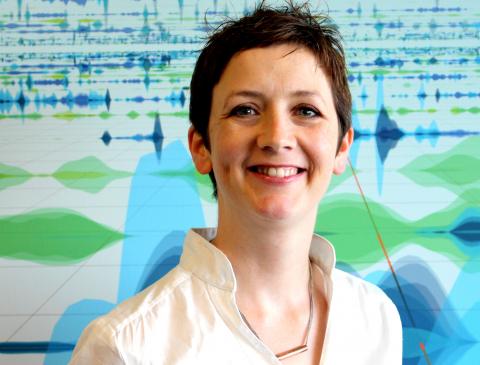
Dr Cathy Quinlan leads the Melbourne Genomics Genetic Kidney Disease project. Cathy and her team are investigating whether genomic sequencing can provide a more definitive diagnosis for kidney patients and enable more personalised care. We asked Cathy a few questions about the project.
What is your role in the project?
As project leader, I head a fantastic team of nephrologists (kidney specialists), clinical geneticists and genetic counsellors, who work together to identify and recruit adult and child patients with genetic kidney disease. Our project in Victoria is part of a larger, national renal genetics project, ‘Kidgen’, supported by the Australian Genomics Health Alliance.
Can you tell us a bit about you?
I’m a paediatric nephrologist at The Royal Children’s Hospital (RCH) and a clinician researcher with the Murdoch Children’s Research Institute (MCRI) and The University of Melbourne. I’ve been based at the Melbourne Children’s Campus since 2013. (The term, ‘Melbourne Children’s Campus’ refers to RCH, MCRI and the University of Melbourne Department of Paediatrics, which are all co-located at the RCH site.)
Originally, I’m from Ireland, where I graduated from University College Dublin. I completed clinical training at the Children's University Hospital in Dublin, and at London’s Great Ormond Street Hospital.
In 2015, I established the first multi-disciplinary renal genetics service at RCH supported by a grant from The Royal Children’s Hospital Foundation.
What is genetic kidney disease?
There are many causes of kidney disease, including diabetes and high blood pressure, as well as inherited causes.
Genetic kidney disease affects at least three per cent of the Australian population. About 40 per cent of children and 20 per cent of adults with genetic kidney disease will require dialysis or kidney transplantation. Dialysis is now the most common single reason for hospital care in Australia.
Our kidneys play a vital role in removing waste products and excess fluid from the body. If the kidneys fail, then dialysis or transplant are the only options. People with chronic kidney disease also have two to three times the risk of death from heart disease.
However, kidney disease is treatable, especially if detected early. About 1.7 million Australians have some indication of chronic kidney disease, but only 10 per cent of those with the condition know they have it. If it is identified early enough, then progression of the disease can be slowed.
What does your project hope to achieve?
Our project aims to determine the usefulness of genomic testing for kidney disease. To do this, we are collating demographic, phenotypic, management, health economic, quality of life and genomic data on 200 patients across four sites in Melbourne: Austin Health, The Royal Melbourne Hospital, Monash Health and The Royal Children’s Hospital.
We hope to determine which patients will benefit from genomic testing and collect data to support our hypothesis that such testing would have advantages for patients – paving the way to preventative treatment, family screening and reducing the burden of treatment.
What excites you about this work?
When I started the RCH Renal Genetics service, I discovered the immense value that a diagnosis can make to families. I realised that naming the disease was an important step towards acceptance and coping for patients and families. I also discovered that many patients had been previously mislabelled and that for some, getting an accurate diagnosis enabled appropriate and preventative treatment, family screening and family planning.
While I love the time spent with patients and relish the intellectual challenge of renal genetics, I get the most enjoyment from working within a dedicated, diverse and interesting team. I am constantly stretched to learn new skills and am fortunate to have made many new friends through renal genetics who make me excited to come to work each day.
For more on the Flagship, read here.
